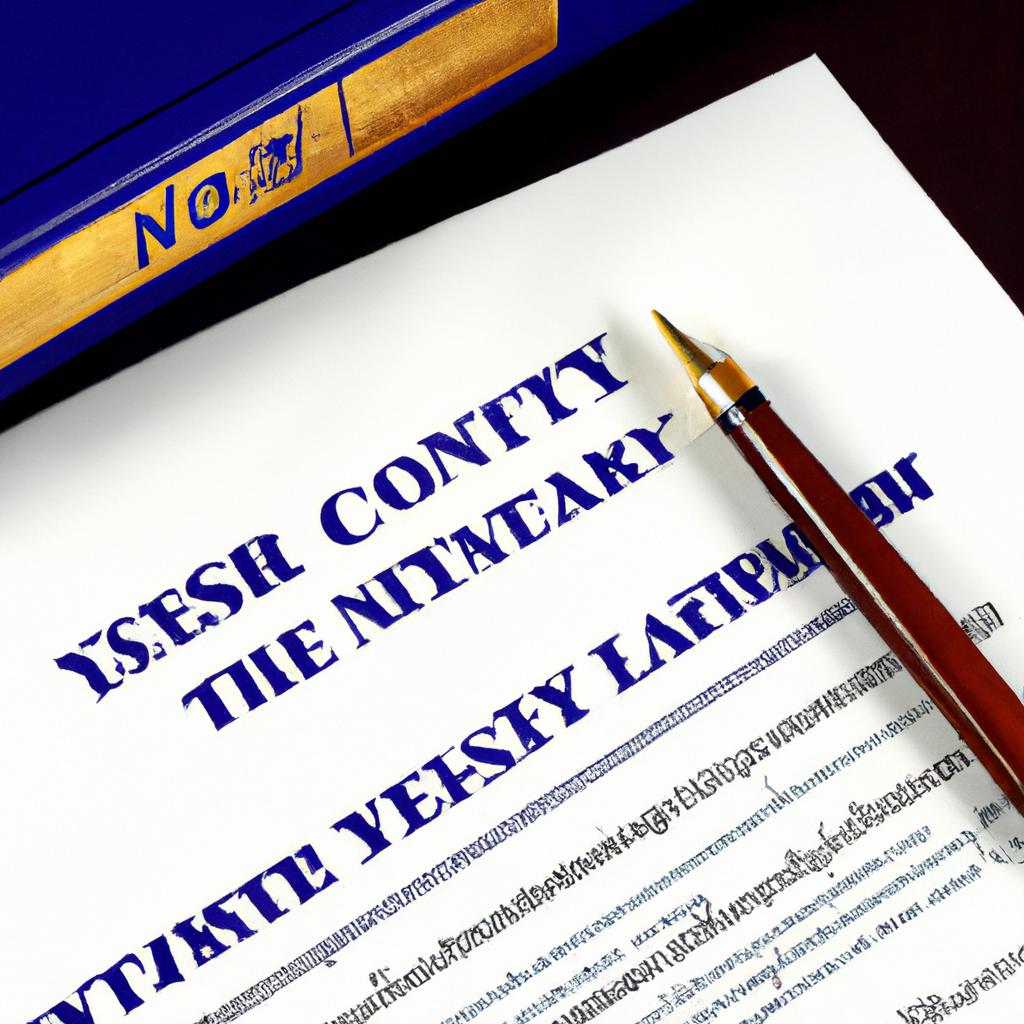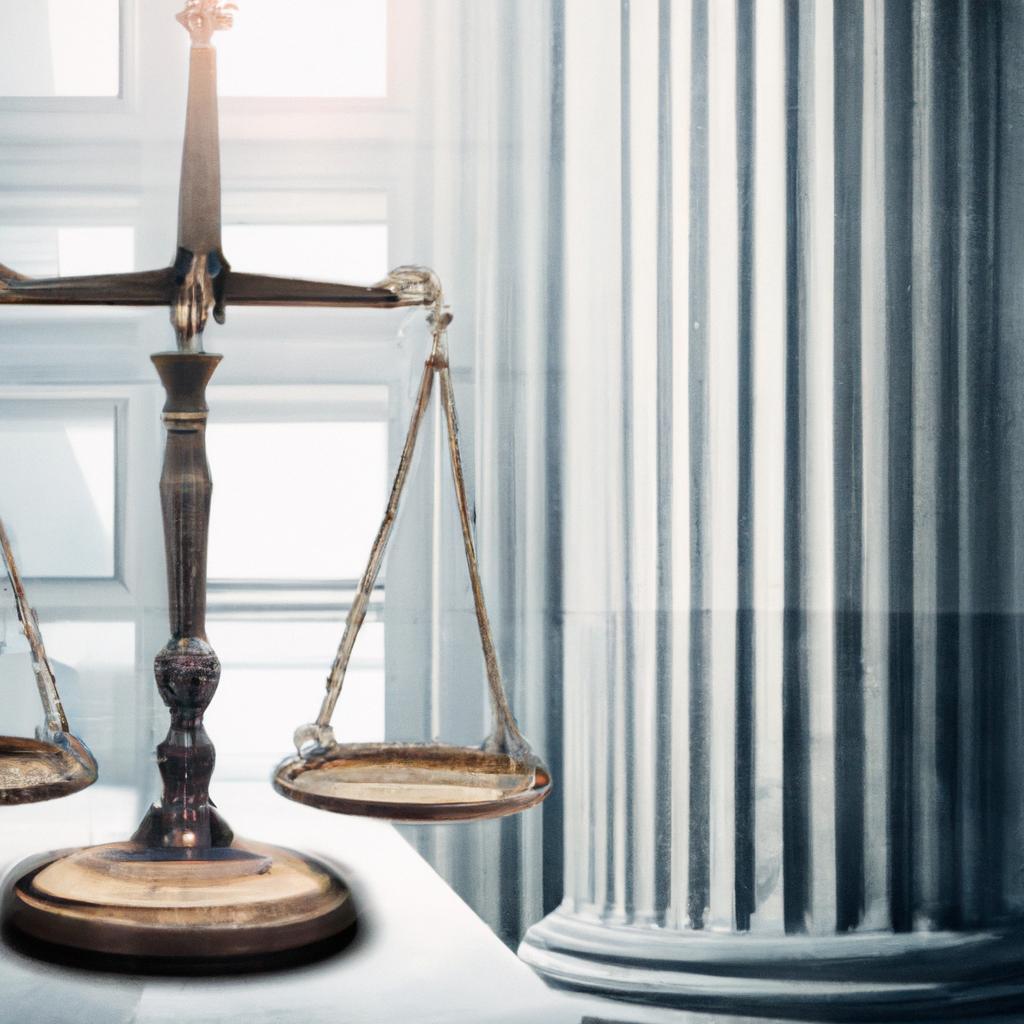Navigating the intricacies of settling an estate in New York without a will can be a complex and daunting process. As experienced attorneys at Morgan Legal Group, we understand the importance of ensuring that a loved one’s assets are distributed according to New York state laws. In this article, we will explore the steps involved in settling an estate without a will in New York, providing valuable guidance and insight for those facing this challenging situation. Join us as we delve into the legal procedures and considerations necessary to effectively settle an estate in the absence of a will.
Navigating the New York Intestacy Laws
If a loved one has passed away without a will in New York, navigating the intestacy laws to settle their estate can be a complex and daunting task. In such situations, it is crucial to understand the legal process and requirements to ensure a smooth settlement of the decedent’s estate. Here are some key steps to guide you through the process:
- Determine the heirs: The first step is to identify the legal heirs of the deceased as per New York intestacy laws. These heirs will be entitled to inherit the decedent’s assets according to the state’s rules of intestate succession.
- File a petition for administration: In cases where there is no will, a petition for administration must be filed with the Surrogate’s Court in the county where the decedent resided. The court will appoint an administrator to oversee the estate settlement process and ensure that all assets are distributed in accordance with the law.

Identifying and Locating Assets of the Estate
When settling an estate in New York without a will, one of the first steps is to identify and locate the assets of the estate. This can be a complex process, but it is essential to ensure that all assets are properly distributed according to New York state law. To begin this process, it is important to:
- Review financial documents, including bank statements, investment accounts, and tax returns.
- Contact any financial institutions where the deceased held accounts or assets.
- Search for real estate deeds and titles to any property owned by the deceased.
Additionally, it may be helpful to consult with a skilled estate planning attorney who can assist in identifying all assets of the estate and navigating the legal process in New York.

Appointment of an Administrator
When someone passes away without a will in New York, the process of settling their estate can be complex. One of the essential steps is appointing an administrator to handle the deceased’s assets and debts. If you find yourself in this situation, there are specific guidelines to follow to ensure the estate is properly administered.
**Here are some key steps to appoint an administrator for an estate in New York:**
- Gather information about the deceased’s assets and debts.
- File a petition with the Surrogate’s Court in the county where the deceased resided.
- Provide notice to interested parties, such as heirs and creditors.
- Attend a court hearing to have an administrator appointed by the judge.

Resolving Outstanding Debts and Distributing Assets to Heirs
In cases where a deceased individual did not leave behind a will in New York, the process of settling their estate can become more complex. However, it is still possible to distribute assets to heirs and resolve outstanding debts through proper legal channels. One of the first steps to take is to file a petition for letters of administration with the Surrogate’s Court. This legal document grants authority to an administrator to handle the deceased individual’s estate.
Once appointed, the administrator must follow specific steps to settle the estate, including identifying all assets and liabilities, notifying creditors, paying outstanding debts, and distributing remaining assets to heirs. It is crucial to adhere to New York state laws and regulations throughout this process to ensure a smooth and legally sound distribution of assets. At Morgan Legal Group, our team of experienced estate planning attorneys can guide you through the probate process, offering expert advice and assistance in . Contact us today for personalized legal support in settling estates without a will in New York.
| Steps for Settling an Estate Without a Will in New York: |
|---|
| File a petition for letters of administration with the Surrogate’s Court. |
| Identify all assets and liabilities of the deceased individual. |
| Notify creditors and pay off outstanding debts. |
| Distribute remaining assets to heirs in accordance with New York state laws. |
Q&A
Q: What steps do I need to take to settle an estate in New York without a will?
A: When someone dies without a will in New York, the estate is typically settled through the probate court. First, you will need to determine who will act as the administrator of the estate.
Q: Who can act as the administrator of the estate in New York?
A: The administrator is usually a close relative of the deceased, such as a spouse, child, or parent. If no close relatives are available, the court may appoint a public administrator.
Q: What is the role of the administrator in settling an estate without a will?
A: The administrator is responsible for gathering and valuing the deceased’s assets, paying off debts and taxes, and distributing the remaining assets to the heirs according to New York intestacy laws.
Q: What are intestacy laws, and how do they determine the distribution of assets in New York?
A: Intestacy laws are the rules that govern how assets are distributed when someone dies without a will. In New York, assets are typically distributed to the deceased’s closest relatives, such as a spouse, children, parents, or siblings.
Q: How long does it take to settle an estate in New York without a will?
A: The time it takes to settle an estate without a will can vary depending on the complexity of the assets and the cooperation of the heirs. It can take several months to a year or more to complete the process.
Q: Are there any alternatives to probate for settling an estate without a will in New York?
A: In some cases, a small estate affidavit may be used to transfer assets without going through probate. This option is only available if the deceased’s assets are below a certain value. It is best to consult with an attorney to determine the best course of action for settling the estate.
Wrapping Up
In conclusion, settling an estate in New York without a will can be a complex and time-consuming process. By following the steps outlined in this article, you can navigate through the legal requirements and ensure that the decedent’s assets are distributed according to state laws. It is always recommended to seek the guidance of a knowledgeable estate attorney to assist you through this challenging time. Remember, each case is unique, and patience is key in successfully settling an estate without a will. Good luck on your journey of honoring your loved one’s final wishes.
 How to Settle an Estate in New York without a Will: A Step-by-Step Guide
How to Settle an Estate in New York without a Will: A Step-by-Step Guide
Losing a loved one is a difficult and emotional experience. But on top of dealing with grief, there are also practical matters that need to be addressed. One of these is the process of settling the deceased person’s estate, which can be complex and overwhelming, especially if there is no will in place.
In New York, if a person dies without a will, they are considered to have died “intestate.” This means that the state’s laws will determine how their assets and property will be distributed. This can be a lengthy and unpredictable process, but with some knowledge and guidance, it can be navigated successfully. In this article, we will discuss the steps you must take to settle an estate in New York without a will.
1. Obtain Multiple Copies of the Death Certificate
The first step in settling an estate in New York is to obtain multiple copies of the deceased person’s death certificate. You will need these to prove the person’s death to various institutions and agencies, such as banks, government offices, and creditors. You can obtain certified copies of the death certificate from the funeral home or from the New York State Department of Health.
2. Identify the Estate Executor or Administrator
The next step is to identify who will be in charge of the estate. If the deceased person had a will, they would have named an executor. However, in the absence of a will, the Surrogate’s Court in the county where the deceased person lived will appoint an administrator. The administrator is typically a family member or a close friend of the deceased person. They will be responsible for managing the deceased person’s assets, paying debts, and distributing the remaining assets to the beneficiaries.
3. File a Petition for Administration with the Surrogate’s Court
To start the process of settling an estate in New York, the administrator must file a petition for administration with the Surrogate’s Court. The petition must include detailed information about the deceased person, such as their name, date of death, and assets. It must also state the names and contact information of all heirs, who are the legal beneficiaries of the estate.
4. Notify Creditors and Heirs
Once the petition is filed, the administrator must notify all known creditors of the deceased person’s death. This includes any outstanding debts, such as taxes, medical bills, and credit card debts. The administrator must also notify all heirs of their right to inherit from the estate. This is typically done by mail or in person.
5. Create an Inventory of the Estate’s Assets
The administrator must prepare an inventory of the deceased person’s assets, including real estate, bank accounts, investments, and personal property. This inventory must be submitted to the Surrogate’s Court within six months of the estate’s appointment. The court will then review the inventory and validate it.
6. Pay Debts and Taxes
Before any assets can be distributed to the heirs, all outstanding debts and taxes must be paid. The administrator must obtain an EIN (Employer Identification Number) from the IRS and file a final income tax return for the deceased person. They must also pay any estate taxes owed to the state or federal government.
7. Distribute the Remaining Assets
Once all debts and taxes have been paid, the remaining assets can be distributed to the heirs according to New York’s intestate succession laws. These laws prioritize spouses, children, and parents as heirs, and if there are no eligible heirs, the assets will go to the state.
8. File the Final Accounting
After the assets have been distributed, the administrator must file a final accounting with the Surrogate’s Court, detailing all transactions and expenses incurred during the estate settlement process. The court will review and approve the final accounting, and then discharge the administrator from their duties.
In Conclusion
Settling an estate in New York without a will can be a complex and lengthy process. It is important to seek the guidance of an experienced estate planning attorney to ensure that all legal requirements are met and that the estate is settled efficiently. Additionally, having a will in place can make the process of settling an estate much easier and less stressful for your loved ones. Make sure to create a will and regularly update it to reflect any changes in your assets and beneficiaries.
Remember to take things one step at a time and seek help when needed. Losing a loved one is never easy, but following these steps will help you settle their estate with as little stress and complications as possible. We hope this guide has been helpful and provided valuable information on how to settle an estate in New York without a will.

